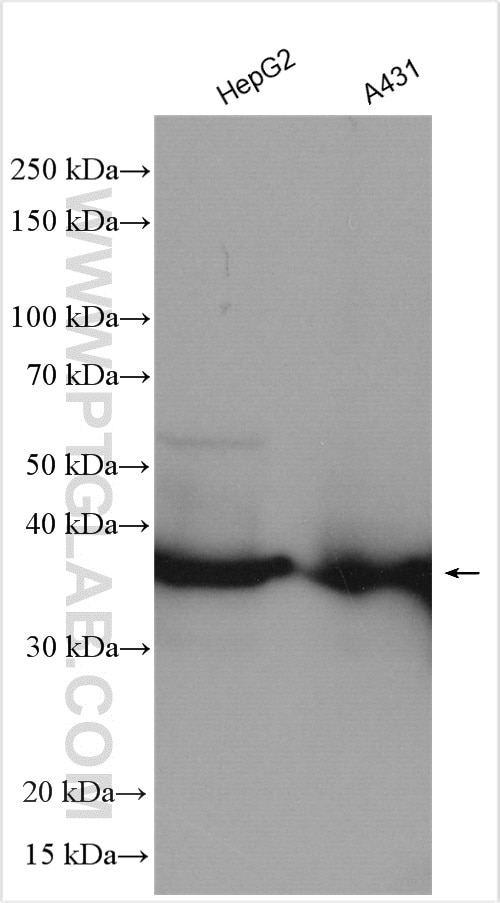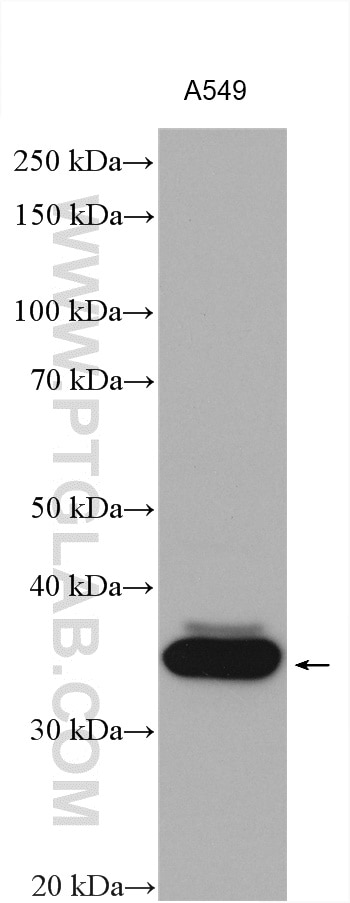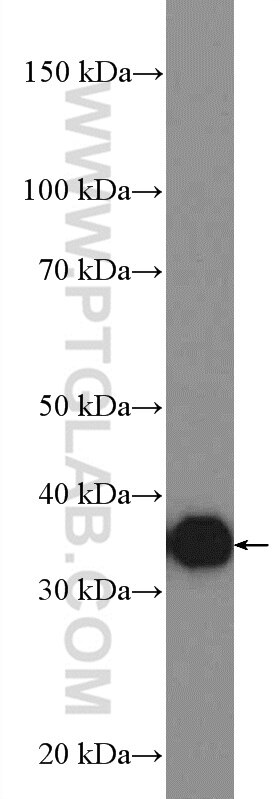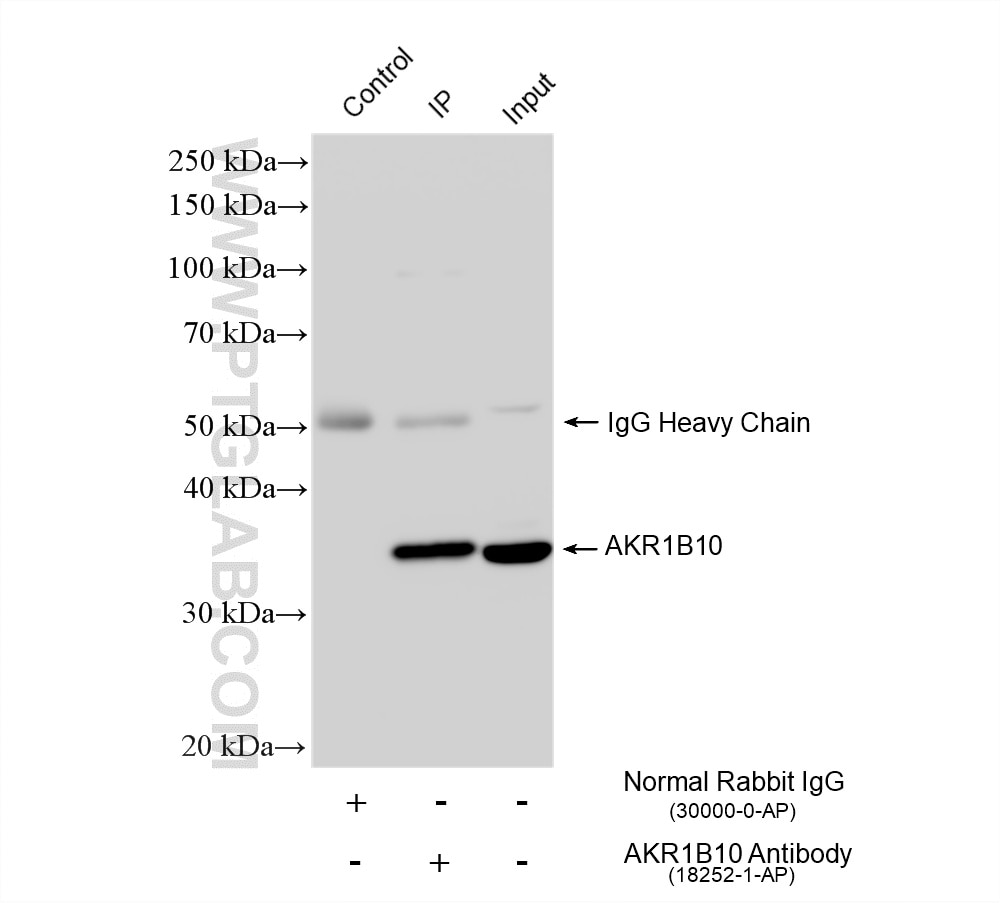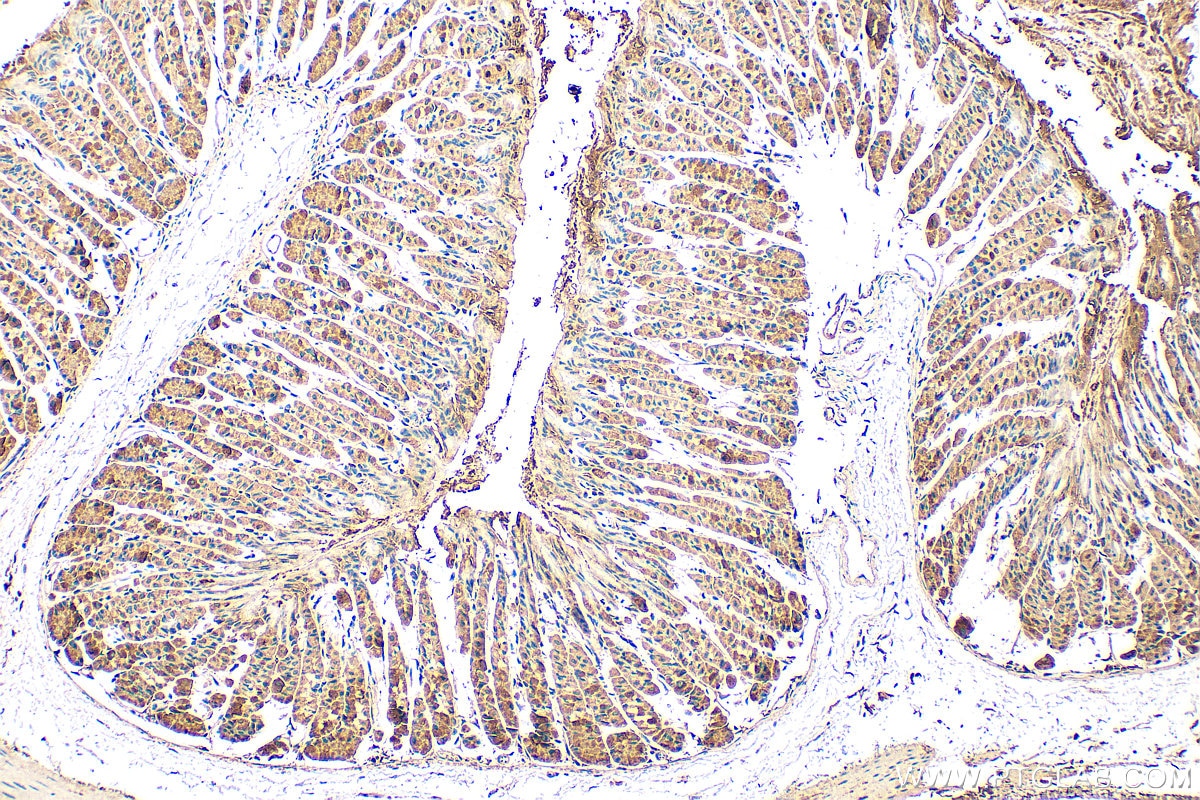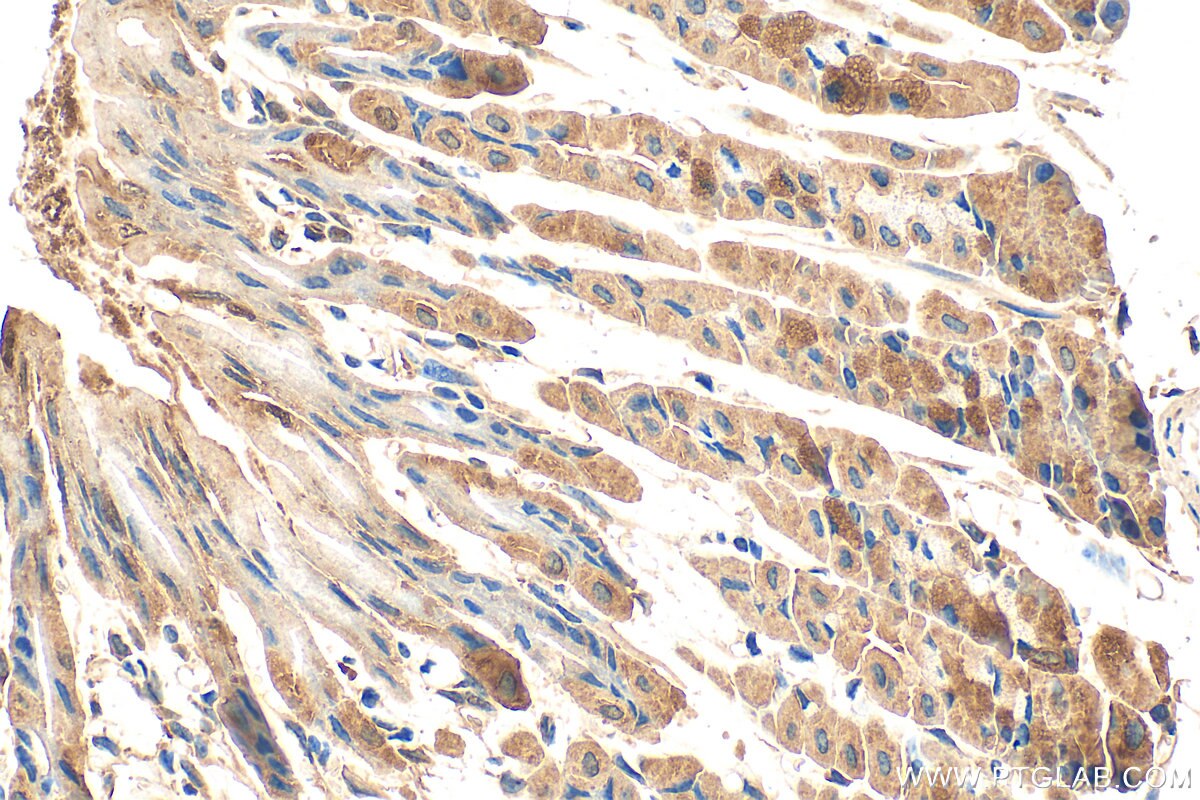Anticorps Polyclonal de lapin anti-AKR1B10
AKR1B10 Polyclonal Antibody for WB, IHC, IP, ELISA
Hôte / Isotype
Lapin / IgG
Réactivité testée
Humain, rat, souris
Applications
WB, IHC, IP, ELISA
Conjugaison
Non conjugué
N° de cat : 18252-1-AP
Synonymes
Galerie de données de validation
Applications testées
| Résultats positifs en WB | cellules A549, cellules A431, cellules HepG2, tissu hépatique de souris |
| Résultats positifs en IP | cellules HepG2, |
| Résultats positifs en IHC | tissu d'estomac de souris, il est suggéré de démasquer l'antigène avec un tampon de TE buffer pH 9.0; (*) À défaut, 'le démasquage de l'antigène peut être 'effectué avec un tampon citrate pH 6,0. |
Dilution recommandée
| Application | Dilution |
|---|---|
| Western Blot (WB) | WB : 1:1000-1:4000 |
| Immunoprécipitation (IP) | IP : 0.5-4.0 ug for 1.0-3.0 mg of total protein lysate |
| Immunohistochimie (IHC) | IHC : 1:200-1:800 |
| It is recommended that this reagent should be titrated in each testing system to obtain optimal results. | |
| Sample-dependent, check data in validation data gallery | |
Applications publiées
| KD/KO | See 1 publications below |
| WB | See 2 publications below |
Informations sur le produit
18252-1-AP cible AKR1B10 dans les applications de WB, IHC, IP, ELISA et montre une réactivité avec des échantillons Humain, rat, souris
| Réactivité | Humain, rat, souris |
| Réactivité citée | Humain, souris |
| Hôte / Isotype | Lapin / IgG |
| Clonalité | Polyclonal |
| Type | Anticorps |
| Immunogène | AKR1B10 Protéine recombinante Ag13042 |
| Nom complet | aldo-keto reductase family 1, member B10 (aldose reductase) |
| Masse moléculaire calculée | 316 aa, 36 kDa |
| Poids moléculaire observé | 35 kDa |
| Numéro d’acquisition GenBank | BC008837 |
| Symbole du gène | AKR1B10 |
| Identification du gène (NCBI) | 57016 |
| Conjugaison | Non conjugué |
| Forme | Liquide |
| Méthode de purification | Purification par affinité contre l'antigène |
| Tampon de stockage | PBS with 0.02% sodium azide and 50% glycerol |
| Conditions de stockage | Stocker à -20°C. Stable pendant un an après l'expédition. L'aliquotage n'est pas nécessaire pour le stockage à -20oC Les 20ul contiennent 0,1% de BSA. |
Informations générales
Aldo-keto reductase family 1 member B10 (AKR1B10) is a member of the AKR1B subfamily. It is mainly found in cytoplasm, and it is typically expressed in the stomach and intestines. Given that its expression is low or absent in other tissues, AKR1B10 is a potential diagnostic and therapeutic biomarker for various digestive system diseases.
Protocole
| Product Specific Protocols | |
|---|---|
| WB protocol for AKR1B10 antibody 18252-1-AP | Download protocol |
| IP protocol for AKR1B10 antibody 18252-1-AP | Download protocol |
| Standard Protocols | |
|---|---|
| Click here to view our Standard Protocols |
Publications
| Species | Application | Title |
|---|---|---|
J Pharmacol Exp Ther Mechanistic Analysis of an Extracellular Signal-Regulated Kinase 2-Interacting Compound that Inhibits Mutant BRAF-Expressing Melanoma Cells by Inducing Oxidative Stress. | ||
J Ethnopharmacol Berberine directly targets AKR1B10 protein to modulate lipid and glucose metabolism disorders in NAFLD
|
Avis
The reviews below have been submitted by verified Proteintech customers who received an incentive for providing their feedback.
FH Shinford (Verified Customer) (10-26-2023) | In tissues, we detected bands at different positions, but in cancer cell lines, the bands appeared notably clearer. The optimal concentration was determined to be higher, specifically at 1:1000.
 |
